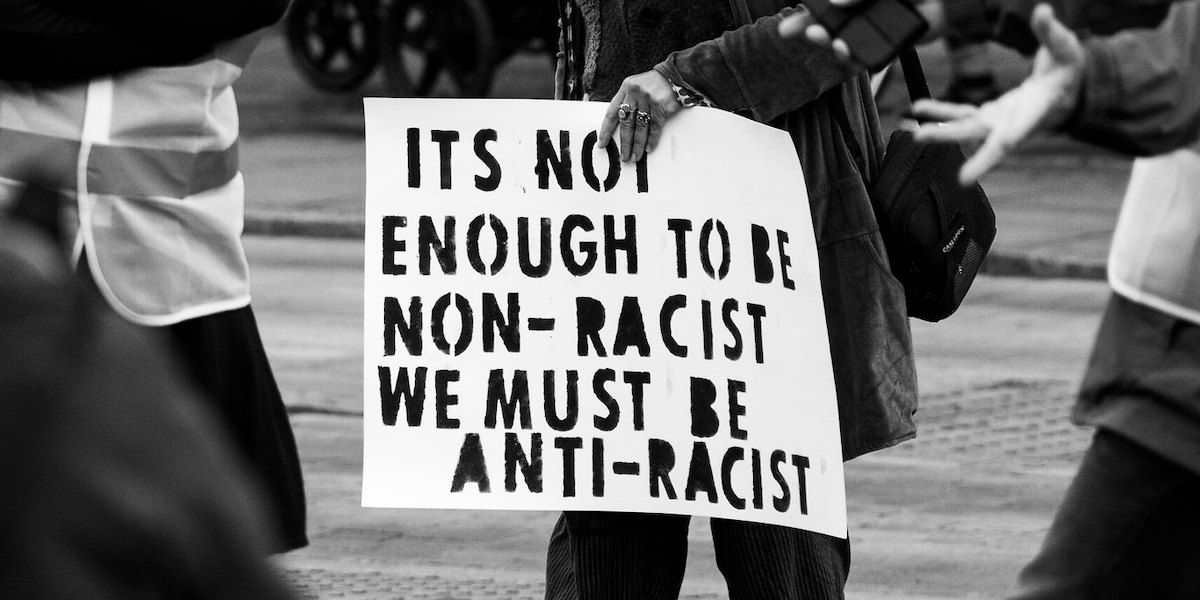This October marked the 35th year of Black History Month being observed in the UK. The brainchild of Akyaaba Addai-Sebo, a Ghanaian journalist and pan-Africanist, the month has become a time when we celebrate and recognise the contribution and achievements of those of African or Caribbean heritage in the UK.
‘Something had to be done to make the black child believe in themselves,’ Addai-Sebo wrote in 2020. ‘What stirred in me was the urgency of creating a permanent celebration in the UK of Africa’s contribution… especially its contribution to the development of London, and the United Kingdom as situated in Europe.’
For over three decades the month continues to be the main way people learn about black British history, and as a topical hook for journalists, broadcasters, teachers and educators to tell the vital stories and histories of black people to their respective audiences.
Neglected histories
One of the biggest ways Black History Month has changed the fabric of British society is its ability to bring marginalised and neglected histories to the forefront. Due to the deliberate side-lining of black Britain and the true history of the British empire in the curriculum, many individuals can go their education without coming across authentic black British history. Black History Month can be, and has been, used as a way of introducing audiences to black British histories they may not have heard about before.
However, we must teach a varied and diverse version of black British history. There is an increasing belief and notion that Black people first came to the United Kingdom after World War Two, specifically with the arrival of the HMT Windrush on 22 June 1948.
Whilst the term ‘black British’ came to prominence in the 1950s and 1960s, black people have made Britain their home for centuries. Black people have been in Britain since the second and third centuries, first arriving with the Romans, well over a thousand years before the first English sailors even reached the shores of Sub-Saharan Africa in the 16th century.
Skeletal remains of British people with African heritage have been found near York, one of Britain’s most ancient settlements, including the Ivory Bangle Lady, discovered in 1901. Though unearthed many years ago, it was more recently that archaeologists were able to confirm that the woman was most likely of African ancestry and that she was born and had died in Britain.
We must teach a varied and diverse version of black British history
This is not the only proof of an established Black presence in Britain or Black people’s involvement in British history. African and Caribbean men fought in the Napoleonic wars, including the Battle of Toulouse in 1814, the Peninsular War (1808-1814), the Battle of Quatre Bras, and the decisive conflict at Waterloo in June 1815 which saw the defeat of the French Emperor Napoleon. Several historical documents and archives also reveal that there were Black Tudors, Stuarts, Georgians, Victorians, and Edwardians.
There has even been a royal family member of African ancestry by the name of Charlotte of Mecklenburg-Strelitz, the fifth-longest serving Monarch’s consort. The Royal Family’s proximity to, and relationship with, black people has come under the spotlight with the marriage of Meghan Markle and Prince Harry. Looking at the marriage through a historical lens would show that this is not the first time a person of African ancestry has married into the Royal Family, rather the first time it has been published, criticised and made into a talking point.
British ignorance?
Despite this information being a mere Google search away and the fact that several acclaimed books and documentary features have been written and filmed on the matter, why then do so many believe that the Black presence in Britain is simply 74 years old?
The fact remains that the HMT Windrush was the first highly publicised arrival of Black people into the UK in modern times, with nearly 500 British Caribbeans entering the country. The contribution made by the first arrivals, and their successors were historic and rightly deserved to be commemorated. The subsequent racism and discrimination they endured must also be noted and acknowledged.
However, to use the arrival of the HMT Windrush as the starting point for black British history and the start of the timeline for black presence in Britain is historically inaccurate and does a massive disservice to all. Many have weaponised the idea that black people first really came to Britain in the 1940s as a way to delegitimise black people’s feelings of Britishness or as a way to undermine the pride we have when we discover black people made Britain their home decades and centuries before we did.
When the BBC released Black to Life: Rethinking the Black Presence within British History which highlighted the number of overlooked historical black individuals and questioned whether the story of black British history had been oversimplified, they received hundreds of complaints of revisionism and accusations of being ‘woke’. This visceral reaction is very telling of how little black British history is understood as well as an indicator that the way Britain teaches history requires a serious overhaul.
Black History Month, as well as a time of national celebration, must also be a time where we push back against prominent and inaccurate historical narratives. As Addai-Sebo said, ‘For black lives to matter, black history must matter. To deny a person’s history is to deny their humanity and to enslave them.’ Historians, broadcasters, and writers like David Olusoga, Afua Hirsch, and Akala do vital work in incorporating Black history into Britain’s story and initiatives like The Black Curriculum and BLAM UK (Black Learning Achievement and Mental Health) are also doing vital work. By supporting these efforts, we may be able to get to a point where people no longer believe that black history and British history are mutually exclusive.










